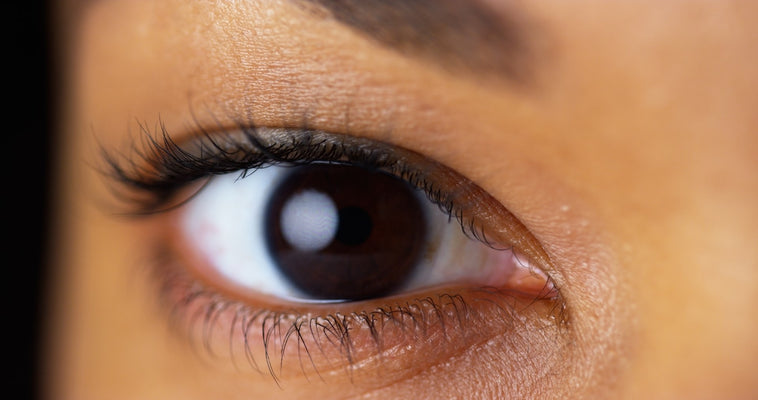Have you ever had the sensation of having wet eyes? It can be quite irritating. The body might produce excessive tears for numerous reasons when it shouldn't. You can have an infection, allergies, blocked tear ducts, and similar reasons leading to watery eyes.
If you have watery eyes, you might feel like crying uncontrollably. However, there is nothing to worry about; it is quite a common condition that occurs occasionally. Read to learn more about watery eyes causes, symptoms, treatment and how to stop eyes from watering.
Introduction to Watery Eyes
Our eyes are susceptible organs. The tears secreted through tear ducts have a crucial purpose. They serve as lubricants to the eyes and protect them against dust and harmful particles. It won't be wrong to say that they form an immune system that protects against any form of infection.
Your tear glands are just beneath the upper eyelids. When we blink, the tear ducts help keep our eyes moist. Medically, watery eyes are a condition called epiphora. When too many tears are produced, they cannot drain properly, resulting in watery eyes. Our nasolacrimal system causes epiphora.
There is no particular age when epiphora manifests itself. However, older adults and newborn children seem to be more prone to watery eyes. It is a treatable condition that, if left alone, could become chronic over time.
If you have been suffering from watery eyes for too long, consult an Optometrist at your nearest optician. Track symptoms aggravating the irritation and find a cure for watery eyes.
Common Causes of Watery Eyes
No physical condition occurs by itself. Various external factors, including certain habits, the environment, and other external factors, can cause epiphora. Let's explore a few common conditions that can cause watery eyes:
- Environmental Factors
Prolonged exposure to specific environmental causes, such as wind, cold, fog, or smoke, can cause watery eyes. Certain factors can also cause dry eyes, which might trigger allergies and agitation of the tear ducts.
- Irritation caused by makeup
More than we realize, makeup can sometimes lead to damage and irritation. For example, if you rub your eyes with makeup on, the chance of infection aggravation increases. Sleeping with eye makeup on is a major contributing factor to infection, so always clean off your makeup before you head to bed.
- Issues with tear ducts and tear production
When the tear ducts get blocked, fluid drainage falls off balance. The tear production system is very intricate and delicate. Poor eye drainage might make it feel like we are crying constantly.
Symptoms and Associated Conditions with Teary Eyes
The causes and symptoms of watery eyes are related. Several symptoms include eye irritation, disturbed blurry vision, and even mucus formation. Watery eyes can also lead to light sensitivity. Accompanied by peeling skin and loose eyelids, epiphora, if left untreated, can become a chronic condition.
Some of the other symptoms of watery eyes, which are prominent, are as follows:
- Uncontrolled tears down the face
- Tears welling up constantly
- Persistent wet eyes
Treatment Options for Watery Eyes
Watery eyes are not too serious initially. However, you must not wait for them to become a chronic condition. We all experience temporary epiphora at some point or another. However, if they persist for an extended period, seeking proper watery eye treatment is crucial.
- Medications: When your eyes get an infection or an allergic reaction, get medication to treat it. If you leave them untreated, your epiphora is bound to get worse.
- Beware of foreign particles: You must protect your eyes from any foreign particles that can harm them. Rubbing your eyes can cause damage. So, be wary of any such factors to prevent the condition from getting severe. In extreme situations, surgery is the treatment you require.
-
Manage tear ducts: The function of tear ducts is vital. Your tear ducts are probably clogged when there is agitation or inadequate fluid drainage. A saline solution can treat the problem.
- Surgery of your eyes: Any malformation in your eyes may cause constant building up of tears. So, given that there is any physical issue with your eyes or eyelids, there can be surgery that can fix it.
The treatment may start with opticians and doctors looking for any eminent sign of infection, lesions, or injuries. The prognosis depends on symptom identification and watery eye treatment.
Watery Eyes in Children, Adults, and Contact Lens Wearers
Excessive watering of your eyes is sometimes expected, but only if it lasts temporarily. Infant eye watering or even newborn eye watering is not unusual; Adults are also prone to epiphora.
Research shows that 6% to 20% of newborns can have excessive watering eyes due to dacryostenosis or nasolacrimal duct blockage. On the other hand, adults may get epiphora due to eyelid malposition. The two most common types of malpositions are ectropion and entropion.
Another reason why individuals may experience epiphora is when they wear their eye contact lenses without much care. Eye lenses can irritate, leading to epiphora because:
- Eye infection
- Damaged or dirty lenses
- Wearing lenses with dirty hands
- Improper lens fitting
- Allergic reaction
Conclusion
People experience watery eyes for several reasons. From blocked tear ducts to allergic reactions, many problems can lead to epiphora. Infant eye watering is fairly common as their ducts are still developing. However, proper watery eyes treatment can stop epiphora from becoming chronic for adults. The condition is not always serious, but if your vision starts getting affected, you must seek help. Always consult opticians and doctors for the watering eyes cure!
Get a consultation and purchase eyeglasses online. Get eyeglasses for men and stylish eyeglasses for women at competitive pricing online.

